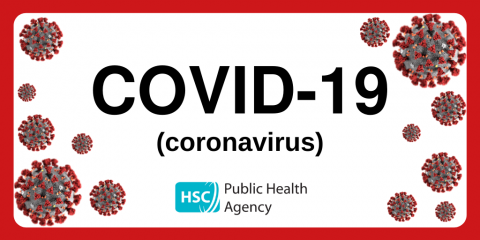The Parish Council and people of Holme St. Cuthberts wish to…
Coronavirus what to do
PHA advice on new coronavirus guidance

The Public Health Agency (PHA) is highlighting the new guidance for self-isolation following the decision to move from the containment to the delay phase for COVID-19 (coronavirus).
The move from containment to delay is timely as we have now seen our first cases of community transmission in Northern Ireland – three of the nine new cases published today. This was expected and highlights the importance of the additional guidance that has been put in place to reduce the spread in our community.
The main implication of these changes is the requirement for anyone who displays specific symptoms to self-isolate, even if they haven’t travelled from an affected area. People who have travelled from affected areas and those who have been in close contact with a positive case should also follow the same guidance.
Dr Jackie Hyland, Consultant in Health Protection at the PHA, said: “This significant change in how COVID-19 is being handled affects everyone, so it is important that people are clear what to look out for and what they should do.
“The most common symptoms of COVID-19 are a new, continuous cough and/or high temperature. If you have any of these symptoms, however mild, stay at home and do not leave your house for seven days from when your symptoms started. This applies to everyone.
“If you develop symptoms common with coronavirus, this action will help protect those close to you such as older family members, those with underlying health conditions or a weakened immune system, and others in our community.”
Specific guidance
The current COVID-19 coronavirus guidance applies to everyone. If any person has a new, continuous cough and/or high temperature, however mild, they should stay at home and not leave home for seven days from when the symptoms started. This applies to all people of all ages.
Previously there was advice specifically for people who had travelled from areas such as Italy, and advice for people who had been in close contact with people who had received a positive diagnosis for COVID-19. This advice has now been superseded by the latest guidance. Everyone should now follow the same advice.
Self-isolation
Dr Hyland continued: “Self-isolation can be frustrating, particularly if you don’t feel especially unwell. We also know that children regularly have coughs and temperatures. However, it is essential to follow the latest guidance regarding self-isolation as an essential part of helping to reduce the spread of coronavirus.
“There are some things you can do to make it easier. Firstly, plan ahead and think about what you will need in order to be able to stay at home for the full seven days should you be required to. Talk to your employer, friends and family to ask for their help to access the things you will need in order to successfully stay at home, and think about and plan how you can get access to food and other supplies such as medications that you will need during this period.
“If you need to self-isolate, ask friends or family to drop off anything you need, or order supplies online, but make sure these are left outside your home for you to collect.
“If there are other people living in your home, stay at least two metres (about three steps) away from them whenever possible, use your own bathroom facilities if possible and sleep alone, if that is possible too.
“Wash your hands regularly for 20 seconds, each time using soap and water, and stay away from vulnerable individuals such as older people and those with underlying health conditions.
“You do not need to call NHS111 or your GP to go into self-isolation. If your symptoms worsen during home isolation or are no better after seven days, seek medical advice by phone. If you have an underlying health condition and develop symptoms do let your GP know. Also be aware that symptoms consistent with coronavirus could also be caused by another illness, in which case you should seek medical advice as appropriate in a timely manner. In a medical emergency dial 999.”
The current advice is intended for people with symptoms of COVID-19, including those with a diagnosis of COVID-19 infection, who must remain at home until they are well.
People who are self-isolating with mild symptoms will not be tested.
Information on COVID-19 can be found on www.pha.site/coronavirus
